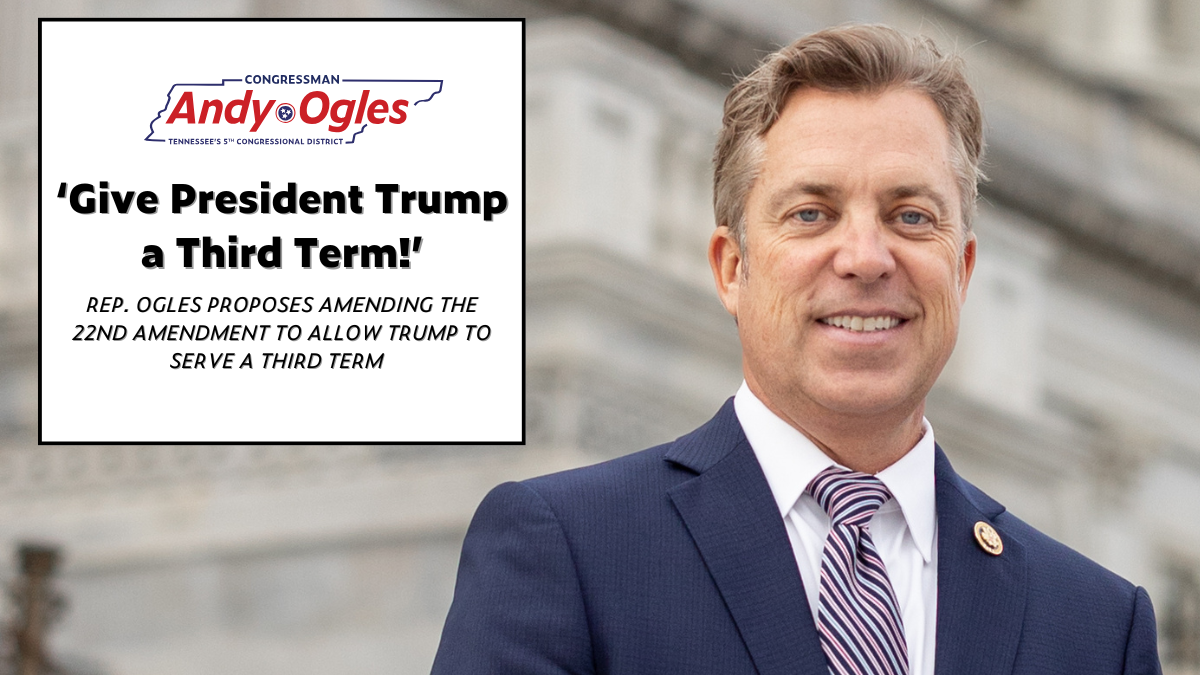Could Trump Serve a Third Term? Exploring the 22nd Amendment and Its Implications
The question of whether Donald Trump could serve a third term as President of the United States has become a hot topic in recent political discussions. Recently, Representative Ogles proposed amending the 22nd Amendment to enable Trump’s potential candidacy for a third term. But what does the 22nd Amendment actually say, and how does it apply in this context? In this blog post, we delve into the intricacies of the 22nd Amendment, the historical context behind it, and the implications of a third term for Trump or any future presidential candidate.
Understanding the 22nd Amendment
The 22nd Amendment to the U.S. Constitution was ratified in 1951. It states, “No person shall be elected to the office of the President more than twice, and no person who has held the office of President, or acted as President, for more than two years of a term to which some other person was elected President shall be elected to the office of the President more than once.” This amendment was established in the wake of Franklin D. Roosevelt’s four-term presidency, which sparked concerns about the concentration of power in the executive branch.
The Historical Context and Purpose of the 22nd Amendment
The founding fathers of the United States were wary of term limits, especially concerning the presidency. However, after FDR was elected to four consecutive terms, the nation recognized the need to limit presidential power. The 22nd Amendment was thus created to prevent any future president from serving more than two terms. The idea is that this would help to mitigate the risks associated with one individual potentially holding too much power for too long.
The Proposal and Current Debate
The recent proposal by Representative Ogles suggests a potential repeal or amendment to the current stipulations of the 22nd Amendment. Advocates for such changes argue that voters should have the ultimate say in whether a candidate, such as Trump, deserves a third term. However, critics argue that amending the constitution could open a Pandora’s box, allowing for the possibility of future candidates attempting to manipulate the system for self-serving motives.
Civil Unrest and Political Polarization
In today’s political climate, discussions surrounding term limits are often rooted in broader themes of civil unrest and political polarization. Trump’s presidency represented both fervent support and vehement opposition, leading many to fear the implications of allowing him to run again. Proponents of rotating leadership postulate that leadership changes are vital for maintaining a healthy democracy and avoiding authoritarian tendencies.
Consequences of a Potential Third Term
If Donald Trump were to successfully secure a third term, the ramifications for the United States could be significant. Radical changes in policy, especially in areas like immigration and healthcare, may shift drastically. Additionally, Trump’s unique political style and approach to governance—often characterized by confrontation—could further divide an already polarized nation. Furthermore, the question of whether Democracy is served when incumbents are allowed more than two terms remains a central debate within political circles.
Responses to the Proposal
The response to Ogles’ proposal has been varied. Some GOP members have shown support, suggesting that it could reinvigorate Trump’s already substantial base. Others, including many in the Democratic party, vehemently oppose the idea, arguing that it poses a grave risk to the democratic system. This divergence highlights a fundamental rift in American politics regarding the interpretation of democracy and the will of the people.
The Role of Voters
As much as the conversation revolves around constitutional amendments, it ultimately returns to the will of the voters. In theory, voters should have the ultimate say in who leads them, and a movement to amend the amendment reflects a broader desire for flexibility in political discourse. However, without measured boundaries, there lies a risk that the democratic process could be undermined. A careful approach ensures safeguarding democracy while allowing voters to choose their leader freely and fairly.
The Future of Political Leadership in America
The proposal to allow Trump a chance at a third term is born from the intertwining of politics and public sentiment, echoing a desire for more dynamic political leadership. It tosses the ball back to voters, yet raises eyebrows about what that could mean for the fabric of American governance. As we reflect on history and the essential principles of democracy, it’s vital to ensure transparency, fairness, and a system that reflects the wishes of the populace.
Conclusion
The question of a possible third term for Donald Trump ignites fervent debate and speculative discussion about the future of the American political landscape. Although the 22nd Amendment stands firm in its assertion to limit presidential terms, the introduction of proposals to amend it points to a growing sentiment among certain political factions yearning for a redefined leadership landscape. As history has shown, however, any movement in this direction should be approached with caution and an unwavering commitment to preserving the democratic processes that define our nation.








